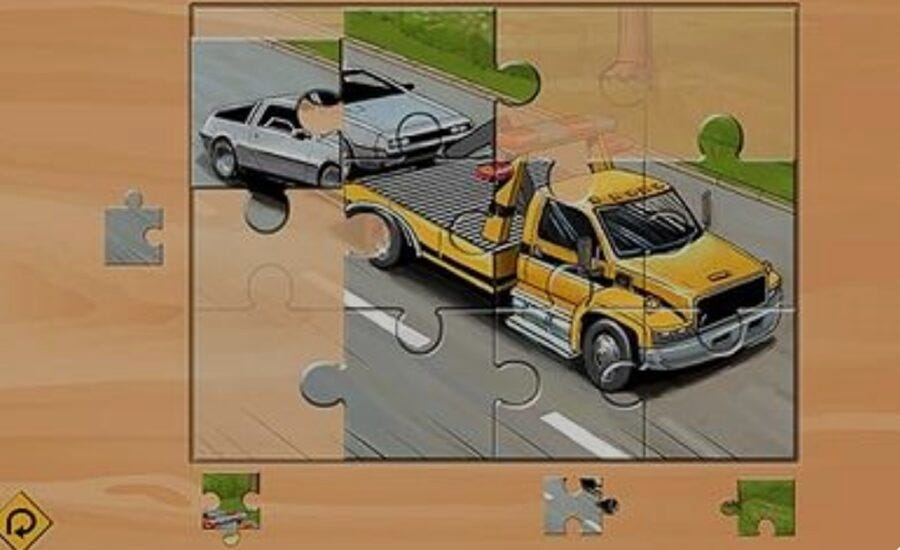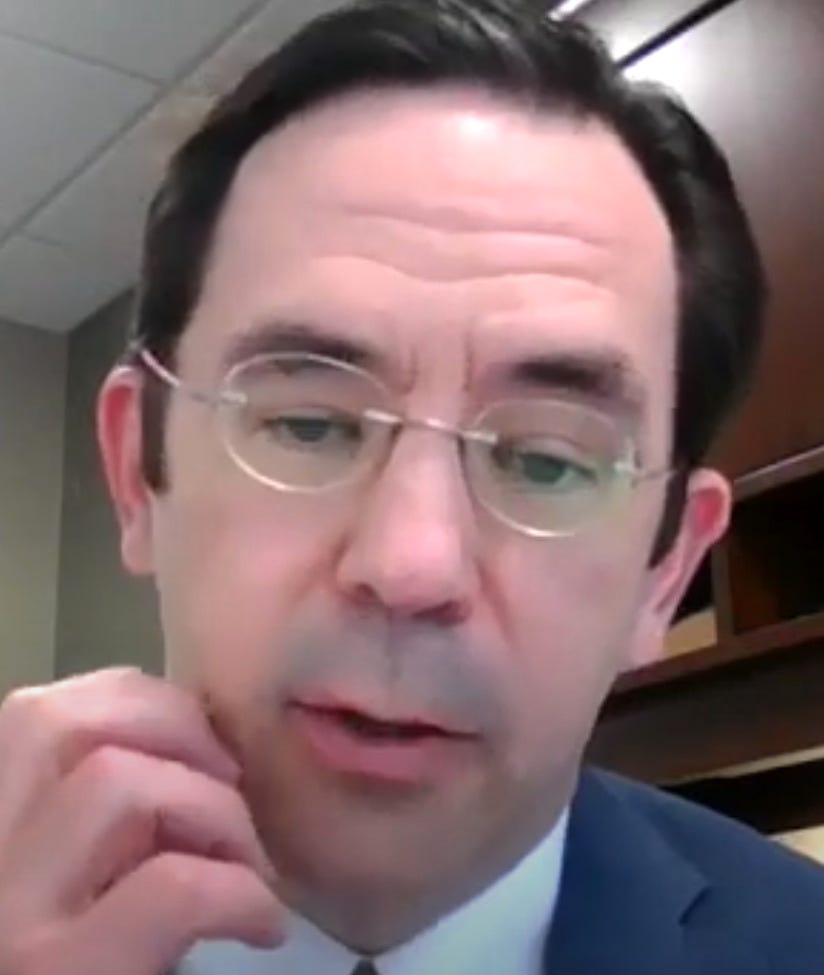For Sauron’s tower makers, puzzle pieces missing, don’t fit
My filing Monday deconstructs rogue program for which Republican overseers will, at some point, have to make reckoning; courts disfavor ‘abrogation by implication’ — but 28X?

Mr. Guerregano is a player in a combat in court. I’m at one table, with pieces scattered in front of me. He’s at another.
The contest is between his puzzle on his table and my puzzle on my table — can we put the pieces of Tenn. Code Ann. § 55-12-201 et seq together to make a coherent picture?
At my table, color, but not a lot of action. Midstate bureau chief Christopher Sapp, a bachelor computer repair man with remarkable erudition, looks closely and puts in another piece. Ed Soloe, a jobless handyman, puffs on a cigarette and peers down from under a ballcap with a mere two pieces of velcro left on the strap holding it atop a mop of hair. We work quietly, aides de camp in my lawsuit to overthrow a department of revenue F$2 billion a year4 shakedown of the public run by Mr. Gerregano, commissioner, serving corporations, with scraps parsed out to the state.
At the table of “The Guano,” who has resisted me since July 2023 to uphold fraud, the work is active, noisy and a little desperate.
The Guano and his attorney, Camille Cline are snipping away with scissors. Jennifer Lanfair, a department head, hovers nearby. With a cup of water and a white cloth, she dampens puzzle edges so they can be bent to fit.
The puzzle has 58 pieces. The two main sections of the law have that many sections. Some of the pieces are themselves puzzles with dozens of internal working parts that have to be assembled before the piece can be lodged.
QUICK TAKE —————
➤ Fraudulent program is disjointed from many law
➤ Petitioner makes all the parts fit together to find real intent of legislature
➤ No administrative agency has power to write or alter law
My work on the puzzle is very serene and irenic, with the parts eventually fitting together and making a coherent picture.
The Guano is sweating. He’s tugging the collar of white shirt. The reason is that the parts don’t fit together and he is using more than he wants to the scissors to snip the parts to make them fit and the cloth dampened “Swack! Swack! Miss Cline uses a hammer to force parts together.
The contest has been going for the past year. My lawsuit against the department revenue for oppression and fraud aims to stop a program that in a recent 5 year period has created in Tennessee 408,820 criminal convictions and thousands more of prosecutions under the Tennessee financial responsibility law of 1977, a.k.a. the TFRL.
The chief harm is that the department revenue has converted its minimal role in administration into the lead. Revenue has illegally eclipsed department of safety in the financial responsibility infrastructure. Revenue is given a step-and-fetch it responsibility always under notice from the department of safety as to whom should be revoked for failure to obey the law or show proof of financial responsibility.
28 enumerated abrogations of law
The law uses the state’s power over license and tag (both are taxable privileges) to compel good acts following an accident.
I have caught revenue department in 28 enumerated abrogations of law, which is chapter 12 in Title 55, the motor and other vehicle law.
The puzzle pieces fail to cohere in revenue’s defense.
That means the department is running a rogue program.
That means it’s a stripmining operation against the law under the pretense of law and under the color of law.
The TFRL applies only to people who have been involved in a qualifying accident. If they comply with the law, all this good. If they don’t comply with the law, or if they have an outstanding judgment against them or are under administrative probation by the department of safety for a DUI or reckless driving, they run into trouble with their licenses and their tags.
The main rule is that if you have a qualifying accident, you have to let safety know within 20 days of the accident and the total damage is. You show financial responsibility by having any 1 of 4 proofs, including insurance. But the law allows people who don’t have insurance to agree on what to do with the damages and submit affidavits to the safety commissioner – indicating a private settlement, without insurance.
Breaches of law, harming people
People who have exemptions and exceptions under part 1 of the law don’t have them in part 2 of the law.
People under suspension in their licenses and obligated to have insurance or alternative POFR (or proof of financial responsibility) for 3 years or 5 years are able to enjoy the last day of mandatory insurance, and on the 1st day that their suspensions are over are free to use their cars without insurance. However, DOR ignores these sunsets because revenue says one has to have insurance at all times. DOR creates contradiction and chaos.
The commissioner of revenue routinely suspends and revokes tags and routinely renews them on his own. The law forbids him to do so and says it is “unlawful” for him to re-register anyone without a written letter from safety.
The puzzle pieces don’t fit. Will his hearing officer hold him to account in my contested case, in agency? Or will the courts uphold the law?




